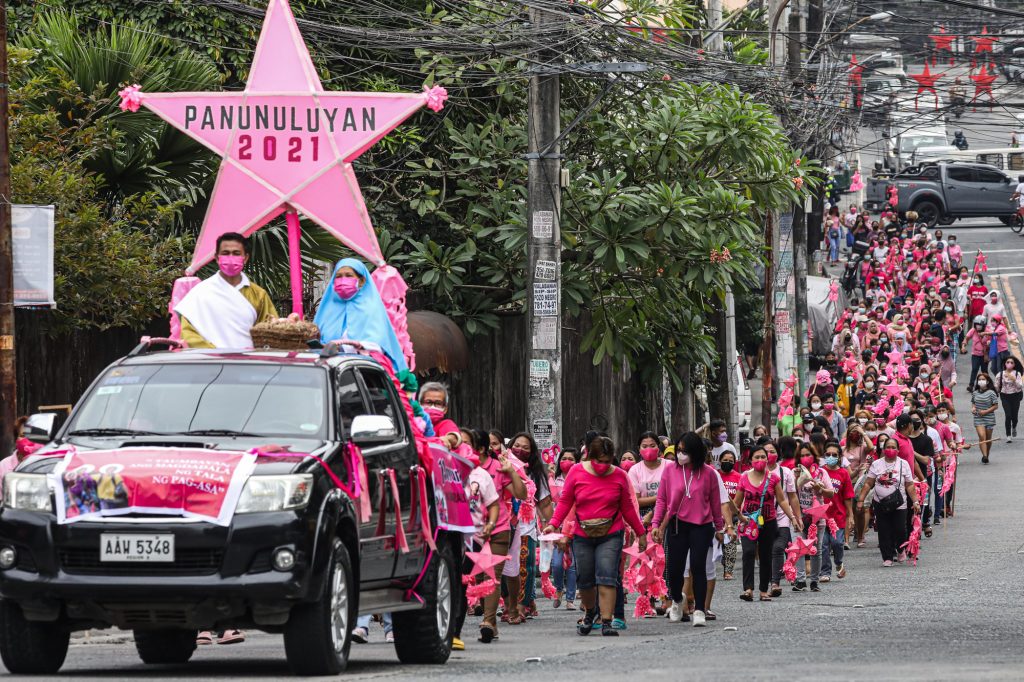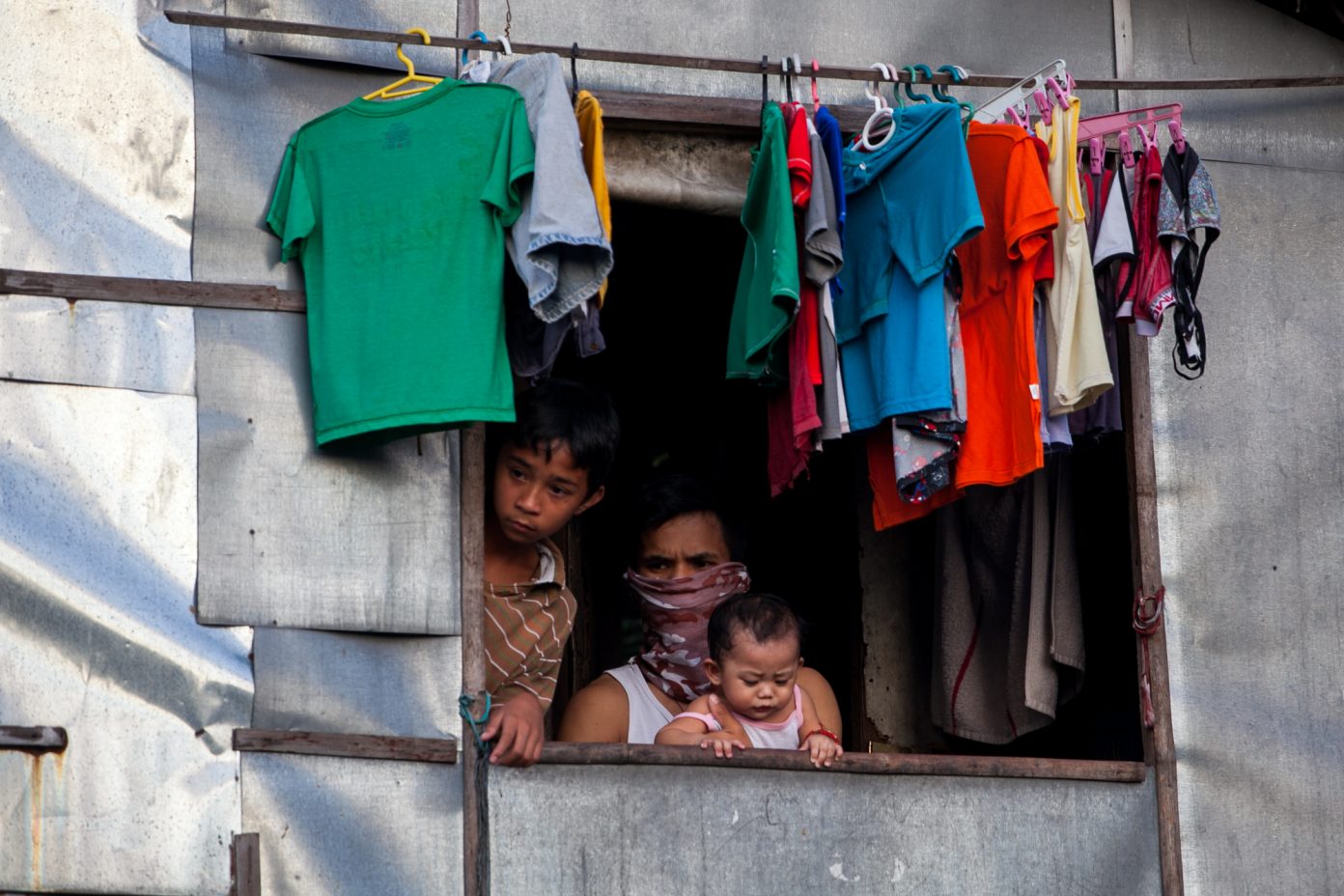For the Church to declare as the “Church of the Poor” is a chimera. It is what we are hoping for. But the Church’s institutional identities are counter to what a “Church of the Poor” should be, unless “system change” is made possible across Church structures.
In the Philippine context, the Second Plenary Council of the Philippines (PCP II) in 1991, stated that “when the Church in the Philippines becomes truly this Church of the Poor, the poor will feel at home in her, and will participate actively, as equal to others, in her life and mission. The Church will then become truly a communion, a sign and instrument, for the unity of the whole Filipino nation.”
An attempt to make the “Church of the Poor” an identity during the 1990s failed from the start when Church leaders changed almost entirely the grassroots movement of Basic Christian Community–Community Organizing (BCC-CO) to Basic Ecclesial Community/Communities (BEC’s) with all biases against BCC-CO’s spreading in both urban and rural communities. And the BEC is formed within the “ecclesial structure” of the hierarchy. And the rest is history.
As a personal assessment, we lost the “Church of the Poor” embraced by Bishop Antonio Fortich of Bacolod and the dedicated lay leaders and pastors who were grounded on building the real “Church of the poor.”
Where is the Church?
The “Church of the Poor” remains to be a misnomer for an institution showered in opulence without even a concern for a life project to end poverty.
Pope Francis speaks of poverty in credible language, in real-time. He said, “In a word, generosity towards the poor has its most powerful motivation in the example of the Son of God, who chose to become poor.” (Message of the World Day of the Poor 2022).
His words have been critical to the institutional attitudes of many Church bodies and personalities; even to self-criticizing the way the Church has become indifferent to the realities of human suffering.
The recently released document of the Synodal Process affirms that the poor “in many cases their voice has been absent from the synod process, and they appear in reports only because others speak about them, lamenting their exclusion.”
The Bolivian Church said it is “saddened that we have not been able to effectively reach out to the poor on the peripheries and in the most remote places.” (Synod on Synodality, Document for the Continental Stage of the Synod, no. 40).
Where is the Poor?
This is a relevant question in the current synodal journey of the Church. This calls for a deep reflection. This is beyond the rhetoric/s of pastoral declarations — that the Church is the Church of the Poor. As St. Vincent de Paul said, “How beautiful it is to see poor people if we consider them in God and with the esteem in which Jesus Christ held them…” (St. Vincent de Paul, XI: 26). The saint lived through this mantra even to the extent of identifying the comfort of the poor inside the churches.
In the first place, we have defined the concept of the poor from an egoistic perspective. Rich personalities, institutions, and governments reinvented the meaning of the “poor” to signify their inherent obligation to share “something” from their excesses, although unable to eradicate the root causes of poverty.
Simply said, the rich needed the poor to amplify their greed. This is the system we are in. We continue to be poor and more dehumanizing situations exist for many.

Pope Francis’ challenge is for the Church to guarantee “that no one lacks what is necessary,” and that the Church brings this message to action.
Churches are in reality in the spaces of impoverishment, within the mid of believers who are mostly on the fringes of exclusion.
“Among the most frequently mentioned excluded groups are: the poorest, the lonely elderly, indigenous peoples, migrants without any affiliation and who lead a precarious existence, street children, alcoholics and drug addicts, those who have fallen into the plots of criminality and those for whom prostitution seems their only chance of survival, victims of trafficking, survivors of abuse (in the Church and beyond), prisoners, groups who suffer discrimination and violence because of race, ethnicity, gender, culture and sexuality. In the reports, all of them appear as people with faces and names, calling for solidarity, dialogue, accompaniment and welcome…” (Synod on Synodality, Document for the Continental Stage of the Synod, no. 40)
Cardinal Luis Antonio Tagle critically pointed out the inclusion and empowerment of the poor as central to the realization of the Church of the Poor: “A Church where the poor are the center of gravity.” (‘What Have We Become? Ten Years After PCP II’, Landas, 16/1/2002)
Reclaiming the ‘Church of the Poor’
The “security” of the Church must be challenged now and always. The security of wealth and opulence that blinded the Church with little concern for many who are “excluded” in society must be challenged by deeper reflection and consequent action to divest and focus its relevance of responding to the realities of human suffering.
The Church cannot remain simply as an observer of human suffering. The Church must not fail, to embrace human suffering as its own, as Jesus did, assuming humanity as integral in his incarnation. The kind of economic injustice beneficial only to some and the inhuman distribution of resources for a few with nothing left for the majority are the reasons why poverty cannot be eradicated, and it is where the Church should understand, embrace, and act as a “Church of the Poor.”
Brother Jaazeal Jakosalem, OAR, is a Filipino Laudato Si’ reader. A member of Pusyon Kinaiyahan, an environmental group in the Visayas. Currently based in Germany as a member of PCPR-Europe, working for the Philippine campaigns related to the protection of human rights.







